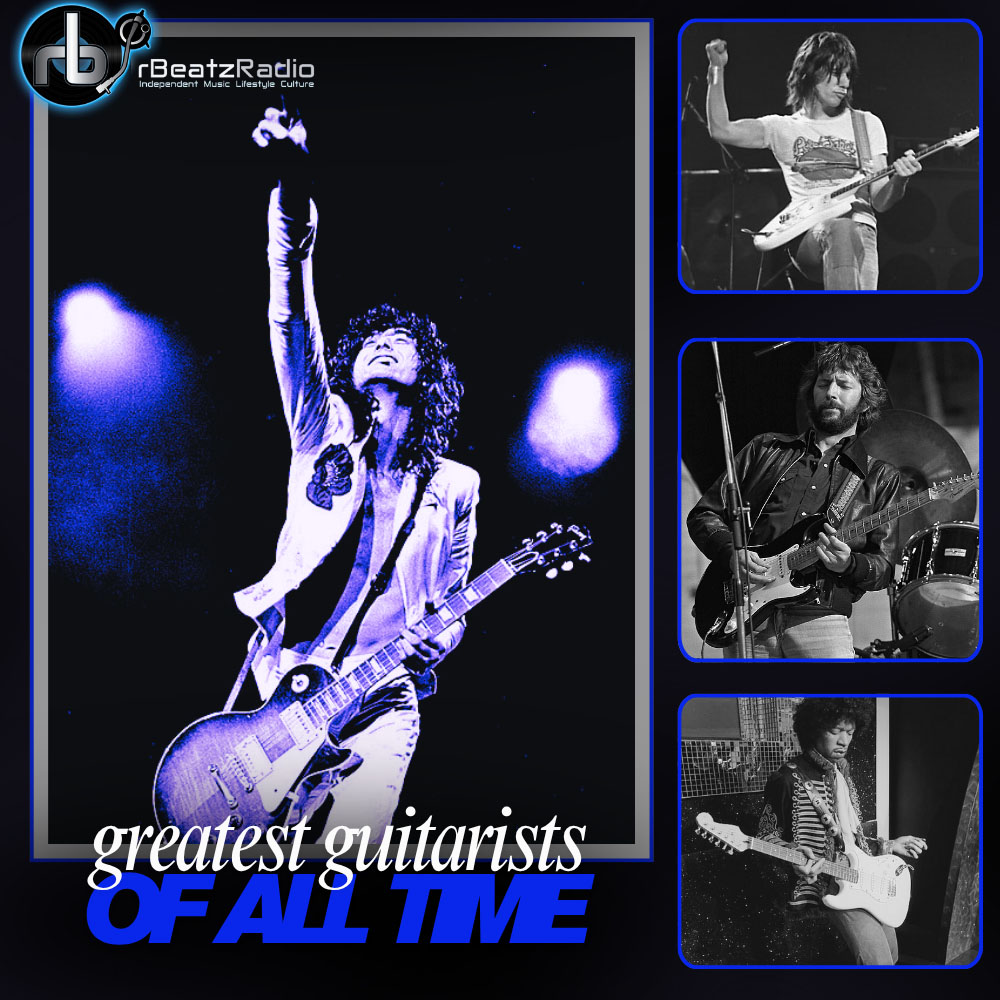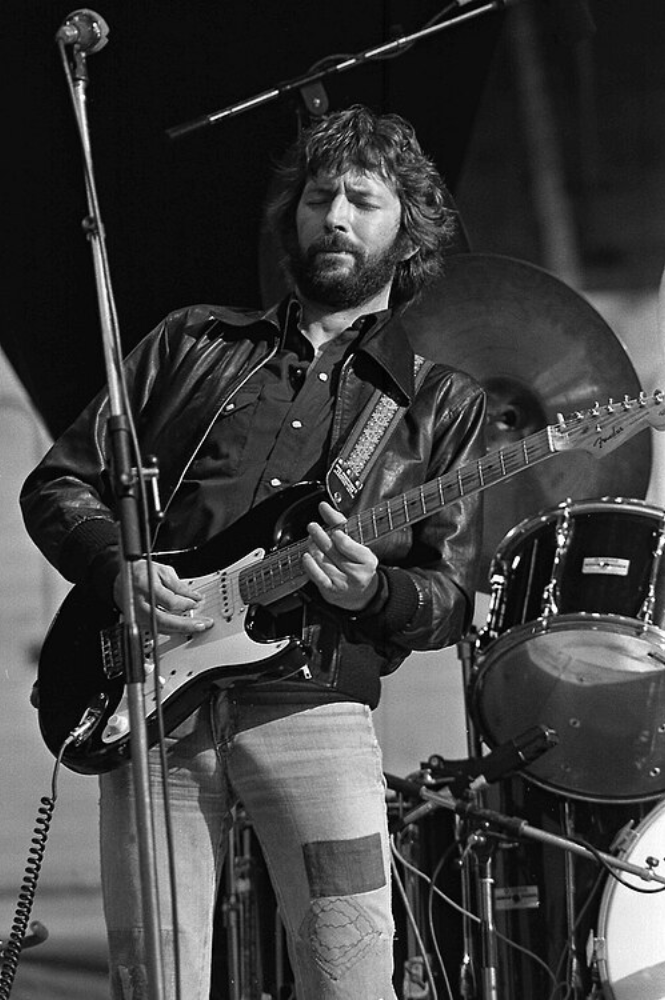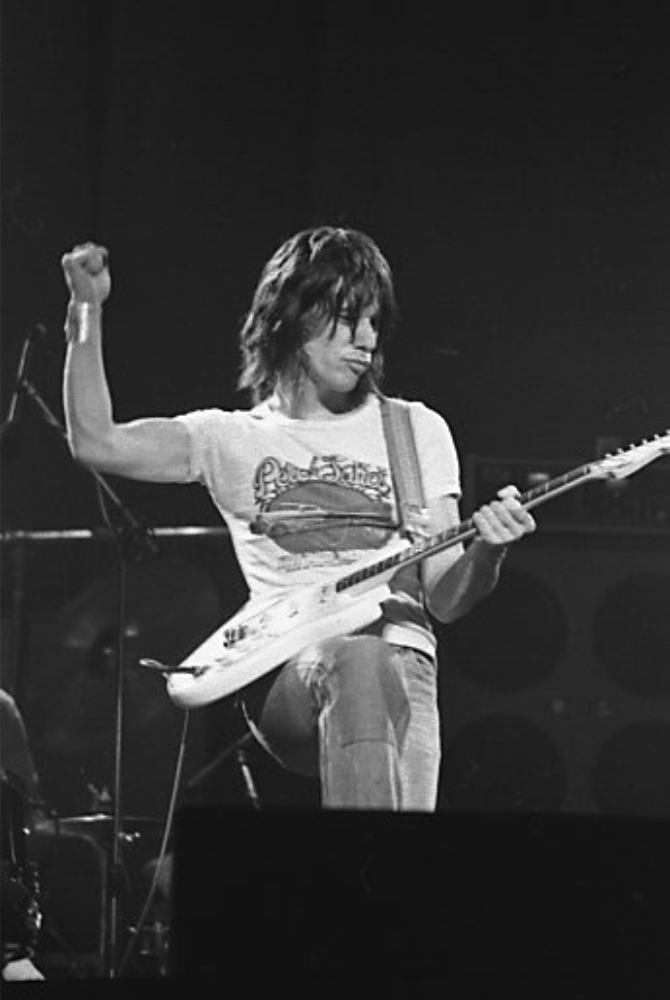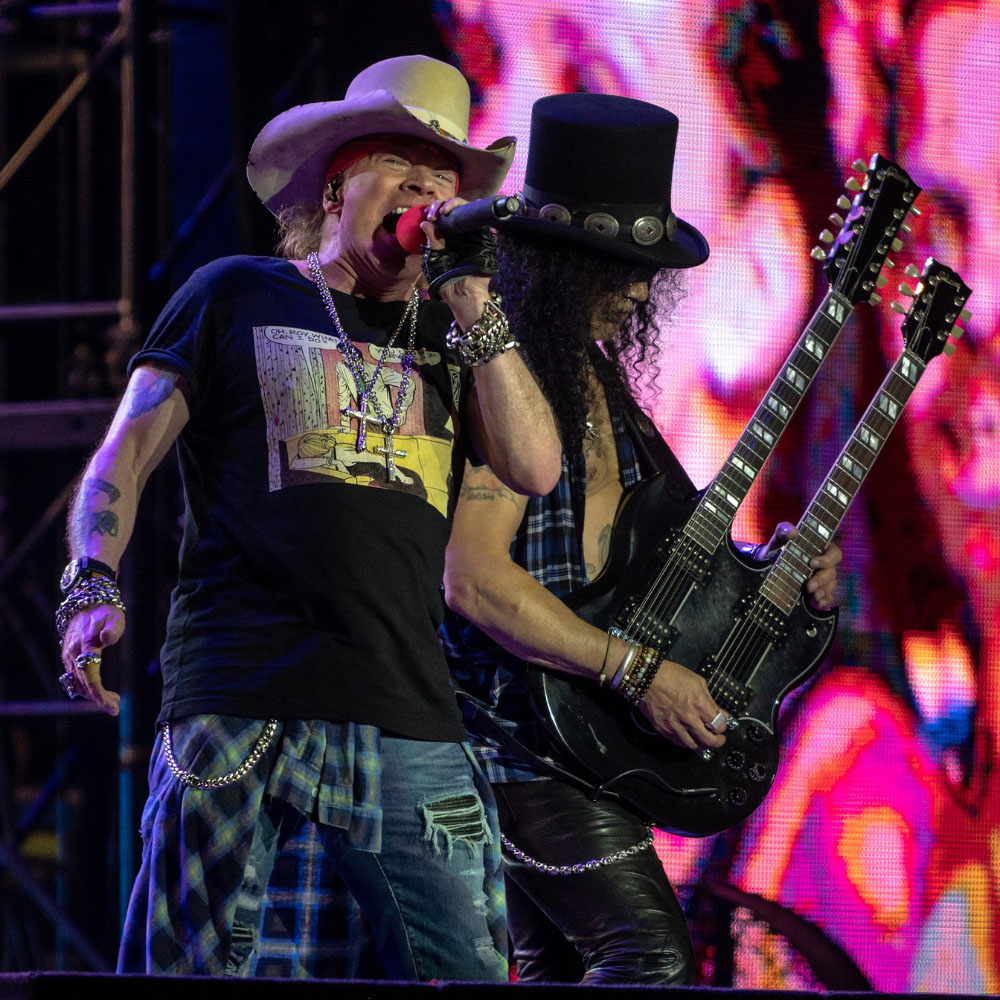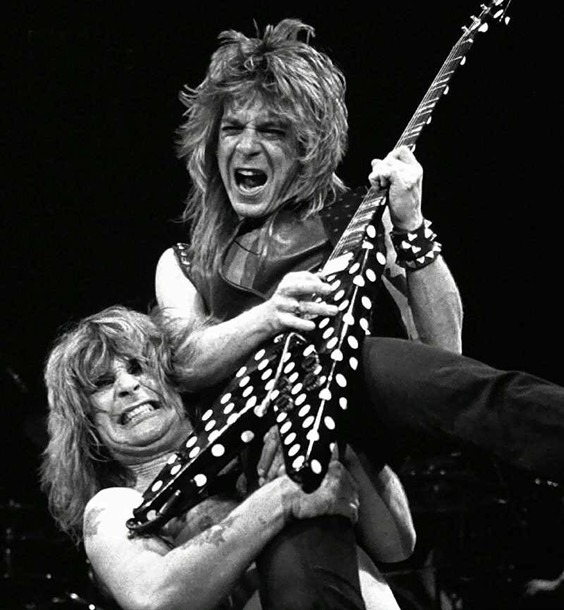Table of Contents
The humble guitar helped shift and shape modern music culture. It’s the foundation of the blues rock sound, which became extremely popular in the post World War II period. Guitarists were particularly influential in the formation of rock music, which started in the ‘50s and reached its zenith in the ‘80s and ‘90s. Entirely new genres were formed during this period, with blues and jazz helping shape modern pop and experimentation giving birth to punk and heavy metal.
In this article, we list the guitarists who defined this important period of modern music. While a short list of 20 musicians will always seem incomplete, it functions as a great jump-off point for new music discoveries.
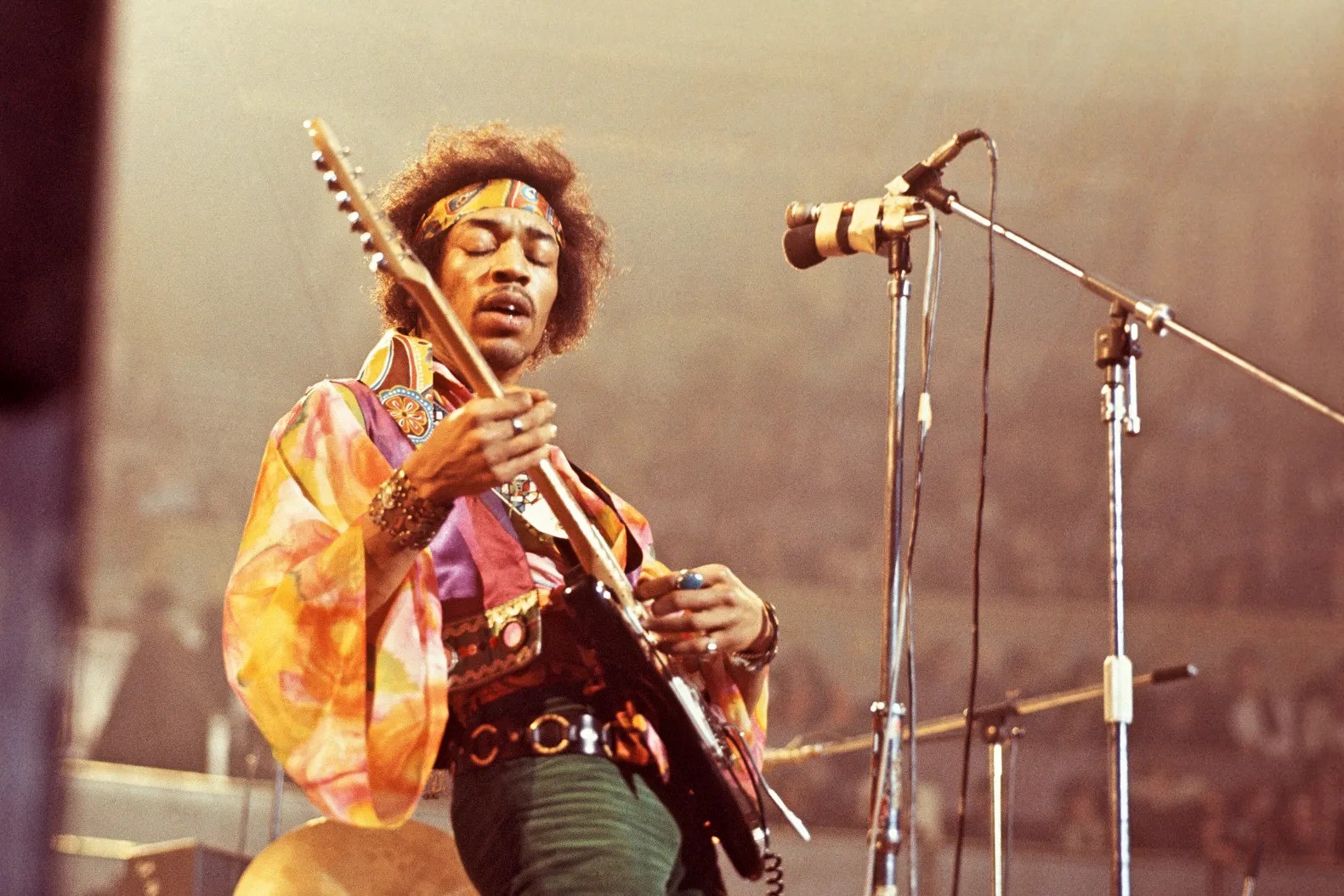
What Makes a Guitarist ‘Great?’
When creating this ranking — which is listed in no particular order — we looked at many different elements. From technical skills and creativity to innovation and influence, the people mentioned here are included for very different reasons. We also thought long and hard about songwriting and composition, along with live guitar performances and the overall cultural legacy of the people involved.
Top 20 Greatest Guitarists of All Time
The following 20 musicians are among the most influential guitarists in history.
Jimmy Page
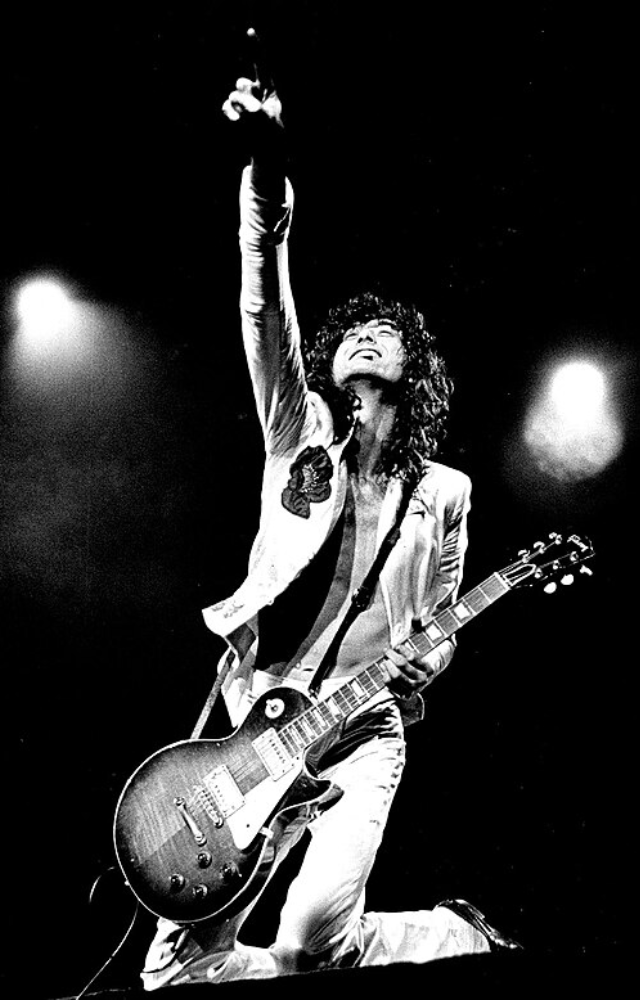
As a founding member of Led Zeppelin, Jimmy Page deserves special mention on any guitar-based list. This iconic hard rock outfit paved the way for heavy metal, and Page was central to the band’s unique sound. Along with his wah-wah pedal, Jimmy Page is famous for intricate guitar solos that changed music history, including the amazing “Stairway to Heaven.”
Jimi Hendrix
This left-handed axe-slinger was the best guitarist ever according to many. He only made four studio albums between 1967 and 1970, but they were some of the best guitar records of all time. Unfortunately, Hendrix is one of the famous “27 club,” a group of musicians who never made it to their 28th birthday. This eerie list includes some of the greatest artists of all time, including Brian Jones, Jim Morrison, Janis Joplin, Kurt Cobain, and Amy Winehouse.
Eric Clapton
This English rock and blues guitarist had a massive influence on modern music. He started his career playing in the Yardbirds, a highly influential band that also included Jeff Beck and Jimmy Page. Clapton also played his famous Fender in the power trio Cream, before starting a long solo career and releasing dozens of studio albums. Eric Clapton is known for his blues-based improvisations and psychedelic rock sound.
Brian May
Sir Brian Harold May is the lead guitarist and backing vocalist in Queen. This iconic band changed the face of pop/rock music, enjoying huge success over many decades. Brian May co-founded the band with singer Freddie Mercury and drummer Roger Taylor. Despite Mercury’s death in 1991, they’re still going strong to this day. May is famous as a virtuoso musician with a distinct layered sound.
Paco de Lucía
While this list is mostly full of blues-based rock guitarists, some artists deserve special treatment. Paco de Lucía was a Spanish virtuoso flamenco guitarist and a leading proponent of the new flamenco style. He also branched out into jazz and classical music, influencing the likes of Richard Chapman and Eric Clapton along the way. If you want to hear what a solo guitar can really do, take the time to check out Paco de Lucía.
Jeff Beck
Jeff Beck was one of the most important electric guitar pioneers of all time, and a huge inspiration to other guitarists. He started his career in the Yardbirds, and he also played in the wonderful Jeff Beck Group. From 1975 onward, Beck released his signature tunes as a solo artist, playing music right up to his death in 2023. Above all else, Jeff Beck is known for his musical innovation and pure expression.
Stevie Ray Vaughn
Stevie Ray Vaughn was another famous guitarist with a highly influential sound. He was the chief guitarist and singer in the blues rock trio Stevie Ray Vaughan, and he also released music in the lesser-known band Double Trouble. Vaughn is also known for his famous collaborations, including his iconic guitar work on David Bowie’s 1983 album Let’s Dance. Guitar legends don’t get better than Stevie Ray Vaughn.
Peter Frampton
Peter Frampton is a legendary guitar player with a long and successful career. He started his career with the Herd and Humble Pie, quickly earning his reputation as a virtuoso player. He went on to release numerous solo records and collaborate with some of the biggest names in modern music, including Ringo Starr and David Bowie.
Prince
He wasn’t really famous as a guitarist, but “the purple one” could do pretty much everything. This highly creative singer, songwriter, and multi-instrumentalist had played guitar since childhood, adding catchy grooves and intricate solos to his unique blend of funk, soul, and rock. The solo he played on “While My Guitar Gently Weeps” during George Harrison’s Rock & Roll Hall of Fame induction was absolutely mesmerizing.
Carlos Santana
This beloved founding member of the American rock band Santana is one of the best modern guitarists of all time. He was one of the best jazz guitar artists ever, and he also pioneered a unique fusion of rock and Latin music. Santana had a unique sense of style and grace matched by very few musicians. Some of Carlos Santana’s best guitar solos ever include “Jingo,” “Europe,” and “A Love Supreme.”
Joe Satriani
This American guitarist is famous for his solo records, and he also played with Mick Jagger and Deep Purple. Satriani is known for his technical style, with his famous Ibanez often creating a cinematic sound that referenced science fiction. Satriani is also a famous guitar teacher, having mentored the likes of Steve Vai, Kirk Hammett, and Charlie Hunter.
Robert Fripp
He may not be a virtuoso in the traditional sense, but Robert Fripp is a massive influence on the guitar world. He’s the longest-serving member of the progressive rock band King Crimson, and he’s also known for his solo work and collaborations. Fripp worked with David Bowie, Blondie, Brian Eno, and Talking Heads. He also created a novel tape delay system known as Frippertronics, which has inspired many alternative rock artists.
Robert Johnson
This iconic blues guitarist and singer laid the foundations for modern rock music. As another member of the “27 club,” he left a profound musical imprint over a very short career. Johnson was the chief proponent of the Delta blues, with his track “Me and the Devil Blues” showcasing a unique dual mastery of guitar work and microtonal singing.
Tony Iommi
As a pioneering member of Black Sabbath, Tony Iommi is one of the founding fathers of heavy metal. Iommi played on all of Sabbath’s releases, and he was the only member to stay with the band from beginning to end. His dark minor-key playing style, deep down-tuning, and power chords set the foundations for the heavy metal genre.
Keith Richards
The Rolling Stones have been an enduring force in rock music for many decades. Guitarist Keith Richards is central to the band’s sound, and he’s still going strong today. Richards swaps between lead and rhythm guitar parts on famous tracks like “Paint It Black,” “Ruby Tuesday,” and “Sympathy for the Devil.” If you’re looking for easy songs to learn on guitar, the Rolling Stones’ songs can be a great option.
Slash
Slash is the epitome of modern rock guitarists, with his unique appearance perfect for the 1980s hair metal scene. As the lead guitarist in Guns N’ Roses, he’s responsible for some of the most iconic guitar riffs of all time. From the opening lines of “Welcome to the Jungle” to the syrupy tones of “Sweet Child O’ Mine,” Slash’s guitar work has always been special. Among other subjects, Guns N’ Roses wrote some of the best songs about California of all time.
George Harrison
As the guitarist in the most famous band of all time, George Harrison has to be on this list. Early in the Beatles’ career, he helped the band embrace a new folk-rock sound. Later on, he pushed them in a psychedelic direction with his love of Indian classical music. George Harrison also composed for the band on occasion, including the memorable songs “While My Guitar Gently Weeps” and “Here Comes the Sun.”
David Gilmour
David Gilmour is a long-standing member of Pink Floyd, having joined the band in 1967 after the departure of Syd Barrett. He played on the band’s most popular albums, and he also released five solo albums along the way. Gilmour is known for his classic rock sound, delivering tight grooves and emotional lines without feeling the need to show off.
Randy Rhoads
Randy Rhoads is one of the top metal guitarists of all time, having perfected the sound and style of glam metal. He was the co-founder of hair metal band Quiet Riot, and he also played on two of Ozzy Osborne’s solo albums. Rhoads is credited with pioneering a fast and technical playing style, which many other guitarists copied to create the hard rock sound of the 1980s.
Eddie Van Halen
There’s no better person to finish off this list than Eddie Van Halen. As the co-founder of Van Halen, along with his brother Alex, Eddie brought creative guitar music to the masses. Among other things, Eddie Van Halen is famous for his tapping guitar techniques, which allowed him to play rapid arpeggios with two hands on the fretboard.
Why Ranking the Best Guitarists Will Always Spark Debate
The guitar is the most popular musical instrument in the world. Given the long history of this iconic instrument and its many accomplished players, it’s impossible to create a list that will please everyone. People like different genres of music, they value different forms of expression, and they listen to music from different time periods.
Despite two notable outliers (Paco de Lucía and Robert Johnson) — who simply couldn’t be left out — the guitarists on this list represent the most talented and influential figures from rock’s fertile period between 1960 and the new millennium. This list is also culturally biased, with all of these guitarists coming from either America or Europe.
Final Thoughts
Over the course of many decades, the guitar has changed the face of modern music. From blues to rock and pop to metal, this simple instrument with six strings has inspired a diverse and always-changing musical landscape. The guitar heroes of the ’60s, ’70s, ’80s, and ’90s have created the soundtrack of multiple generations, and their music remains central to this day.
You don’t have to like the guitarists listed above, but you can’t deny their influence in shaping 20th-century music culture. Next time you hear a powerful riff or intricate solo on the airwaves, remember this humble instrument and its massive influence on us all.

